International mediation and arbitration offer a promising path for Pakistan and Bangladesh to resolve water disputes, enabling sustainable management strategies tailored to their unique contexts. Agreements like the Indus Water Treaty have led to significant strides, with technology innovations crucial for fair distribution and monitoring. Public-Private Partnerships (PPPs) present a strategy to foster regional cooperation and mitigate conflicts, while robust legal frameworks provide clear guidelines. These efforts aim for harmonious coexistence and mutual prosperity along shared rivers, addressing issues like child labor and promoting gender equality.
“Despite historical connections, Pakistan and Bangladesh often find themselves at odds over water resource management, particularly regarding shared river systems. This article explores comprehensive solutions to alleviate these disputes. We delve into various strategies, including international mediation and arbitration, historical agreements, transboundary resource management case studies from Asia, technological advancements in water monitoring, public-private partnerships, and the critical role of legal frameworks. By examining these approaches, we aim to provide a nuanced understanding of potential paths towards harmonious coexistence and equitable water sharing between Pakistan and Bangladesh.”
- International Mediation and Arbitration: A Common Ground
- River Water Sharing Agreements: Historical Perspectives
- Transboundary Resource Management: Case Studies from Asia
- Technological Innovations in Water Monitoring and Distribution
- Public-Private Partnerships: Enhancing Regional Collaboration
- Legal Frameworks and Their Role in Resolving Disputes
International Mediation and Arbitration: A Common Ground

In the complex dynamics between Pakistan and Bangladesh, international mediation and arbitration offer a promising avenue for resolving water disputes. These mechanisms provide a neutral platform where both countries can come together to negotiate and find common ground. By engaging in such processes, Pakistan and Bangladesh can move beyond unilateral decisions and imposed solutions, fostering a collaborative environment that respects each nation’s needs and interests.
Mediation and arbitration allow for the exploration of sustainable water management strategies tailored to the unique geographical and socio-economic contexts of both countries. In light of varying literacy rates and social security systems, these approaches encourage inclusive decision-making, potentially addressing issues like child labor that may arise in the context of shared water resources. As we delve into these methods, it’s crucial to explore how they can serve as a bridge between Pakistan and Bangladesh, ultimately leading to a harmonious and cooperative future, as exemplified by our work on media freedom comparison.
River Water Sharing Agreements: Historical Perspectives
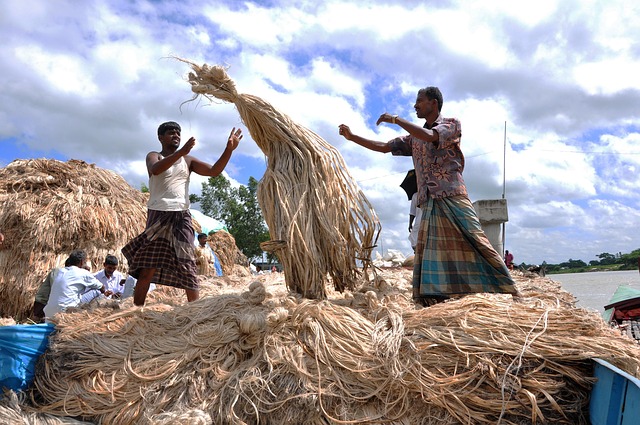
River Water Sharing Agreements between Pakistan and Bangladesh have a rich historical perspective dating back to their independence from British rule in 1947. The establishment of the two nations was marked by complex geopolitical realities, including shared rivers that became a source of cooperation and conflict. Early agreements, such as the 1956 River Water Treaty, aimed to divide water resources equitably while considering the needs of both countries. However, as populations grew and demands increased, these initial pacts became outdated, leading to disputes over water allocation.
Over time, various efforts have been made to update and reform water-sharing agreements, reflecting changing social security systems, education systems comparison, and cuisine diversity comparison between Pakistan and Bangladesh. These negotiations are often fraught with political sensitivities, as both countries strive to ensure fair access to vital resources while balancing their national interests. Despite challenges, the pursuit of sustainable solutions through dialogue and international mediation has been a consistent theme, underscoring the shared goal of harmonious coexistence and mutual prosperity along their common rivers. Find us at tourism attractions contrast for insights into how these agreements shape not just water management, but also broader cultural and economic ties between Pakistan and Bangladesh.
Transboundary Resource Management: Case Studies from Asia
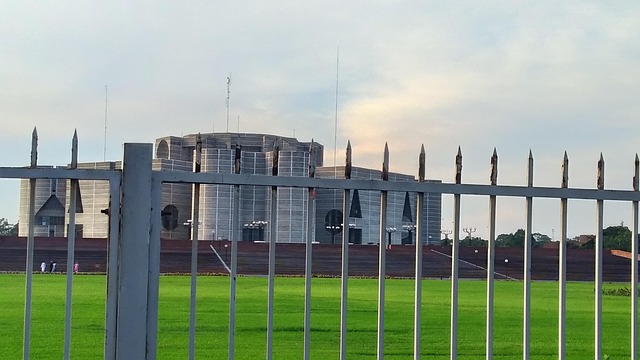
Transboundary water resources management is a complex issue, especially between neighboring countries like Pakistan and Bangladesh, which share rivers such as the Ganges and Brahmaputra. Both nations have made significant strides in resolving their water disputes through cooperative approaches, providing valuable insights for other similar cases globally.
For instance, the Indus Water Treaty, signed in 1960, is a landmark agreement that allocates river waters between Pakistan and India (including Bangladesh at the time). This treaty demonstrates how diplomatic negotiations can lead to equitable and sustainable water sharing. In recent years, countries like China and Mongolia have also implemented similar transboundary water management strategies for rivers flowing across their borders, focusing on data-driven decision-making and mutual benefit. While challenges remain, these case studies from Asia illustrate the potential of collaborative initiatives in managing shared resources, balancing environmental needs with industrial growth in both Pakistan and Bangladesh, and improving gender equality progress by ensuring access to clean water for all citizens, as evidenced by their respective literacy rate differences. Find us at history of pakistan bangladesh for more insights into these complex yet solvable global issues.
Technological Innovations in Water Monitoring and Distribution
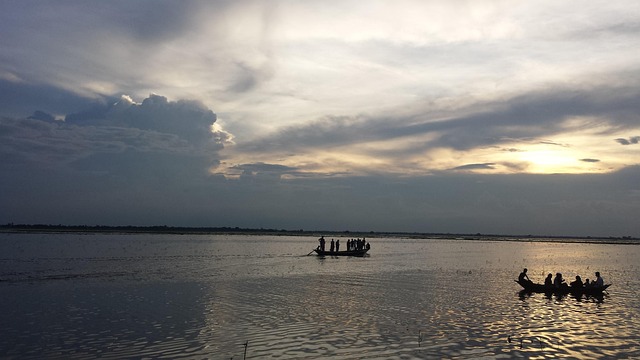
In the ongoing water disputes between Pakistan and Bangladesh, technological innovations play a pivotal role in managing and monitoring this precious resource. Advanced water monitoring systems have been implemented to track flow rates, water quality, and reservoir levels, ensuring fair distribution and preventing scarcity-related conflicts. These technologies not only enable real-time data collection but also predict future trends, aiding in the planning and allocation of natural resources for both countries’ economic development.
Moreover, innovative distribution networks are being developed to optimize water usage, reducing wastage and promoting sustainable practices. Such advancements hold immense potential to alleviate child labor issues exacerbated by water scarcity, as communities can access clean water more efficiently. By visiting us at gender equality progress anytime, stakeholders can explore these technologies further and learn about strategies that foster harmony in managing shared water resources between Pakistan and Bangladesh.
Public-Private Partnerships: Enhancing Regional Collaboration
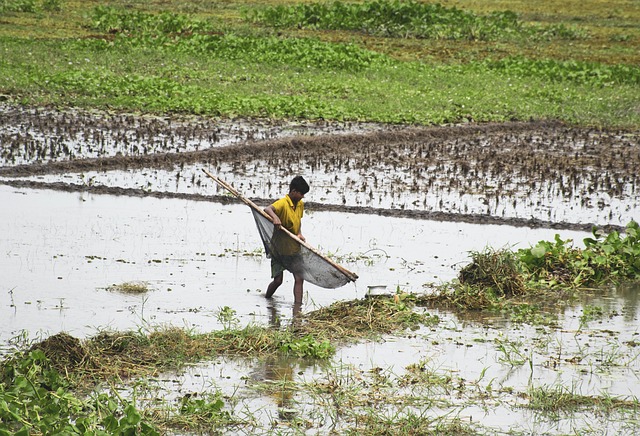
In the context of Pakistan vs Bangladesh, fostering collaboration through Public-Private Partnerships (PPPs) offers a promising avenue to manage and resolve water disputes. By bringing together governmental bodies, private enterprises, and civil society organizations, PPPs can facilitate efficient water resource management, infrastructure development, and sustainable practices. This approach enhances regional cooperation, ensuring both countries benefit from shared resources while mitigating potential conflicts.
Promoting these partnerships can also have broader positive impacts. For instance, improved water management strategies can reduce the frequency and severity of natural disasters—a concern common to both nations. Moreover, enhanced collaboration could lead to better healthcare accessibility through integrated resource planning, benefiting communities on both sides. Even the media freedom comparison between Pakistan and Bangladesh can be addressed through transparent PPP initiatives, fostering trust and understanding in managing shared water resources equitably. Visit us at healthcare accessibility anytime for more insights into these interconnected issues.
Legal Frameworks and Their Role in Resolving Disputes
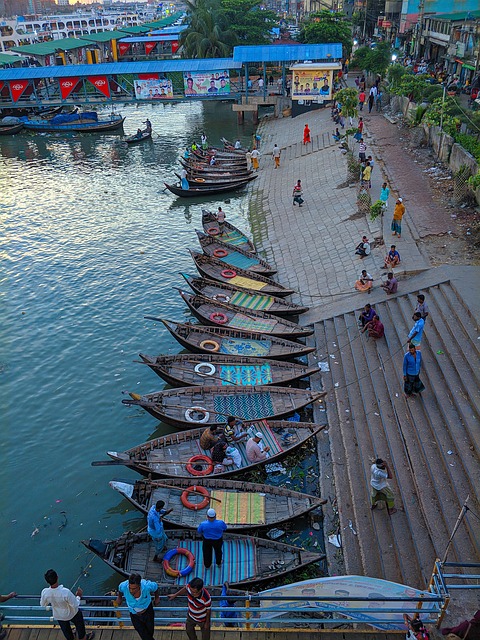
The resolution of water disputes between countries, such as Pakistan and Bangladesh, heavily relies on robust legal frameworks that offer clear guidelines for managing shared resources. Both nations have established comprehensive legal systems to govern water usage and distribution, which serve as crucial tools in mitigating conflicts over limited freshwater sources. These legal frameworks encompass international laws, bilateral agreements, and domestic policies tailored to address the unique challenges posed by geographical features and political dynamics.
In the case of Pakistan vs. Bangladesh, understanding the historical context and the evolving relationship is essential. As two Muslim-majority nations with distinct social issues and media freedom comparisons, they have navigated water disputes through a combination of diplomatic negotiations, international arbitration, and collaborative river management initiatives. By leveraging these legal avenues, both countries can ensure fair access to water resources while fostering sustainable coexistence. Visiting us at Pakistan Bangladesh comparison anytime offers valuable insights into exploring these solutions in depth.
In managing water disputes between Pakistan and Bangladesh, a multi-faceted approach is imperative. The strategies discussed, from international mediation to technological innovations and public-private partnerships, offer promising paths forward. Historical agreements and successful regional collaborations, as seen in Asian case studies, can guide efforts to ensure equitable and sustainable river water sharing. Strengthening legal frameworks remains crucial for resolving disputes and fostering long-term cooperation between Pakistan and Bangladesh, ultimately leading to a harmonious and prosperous future for both nations.
